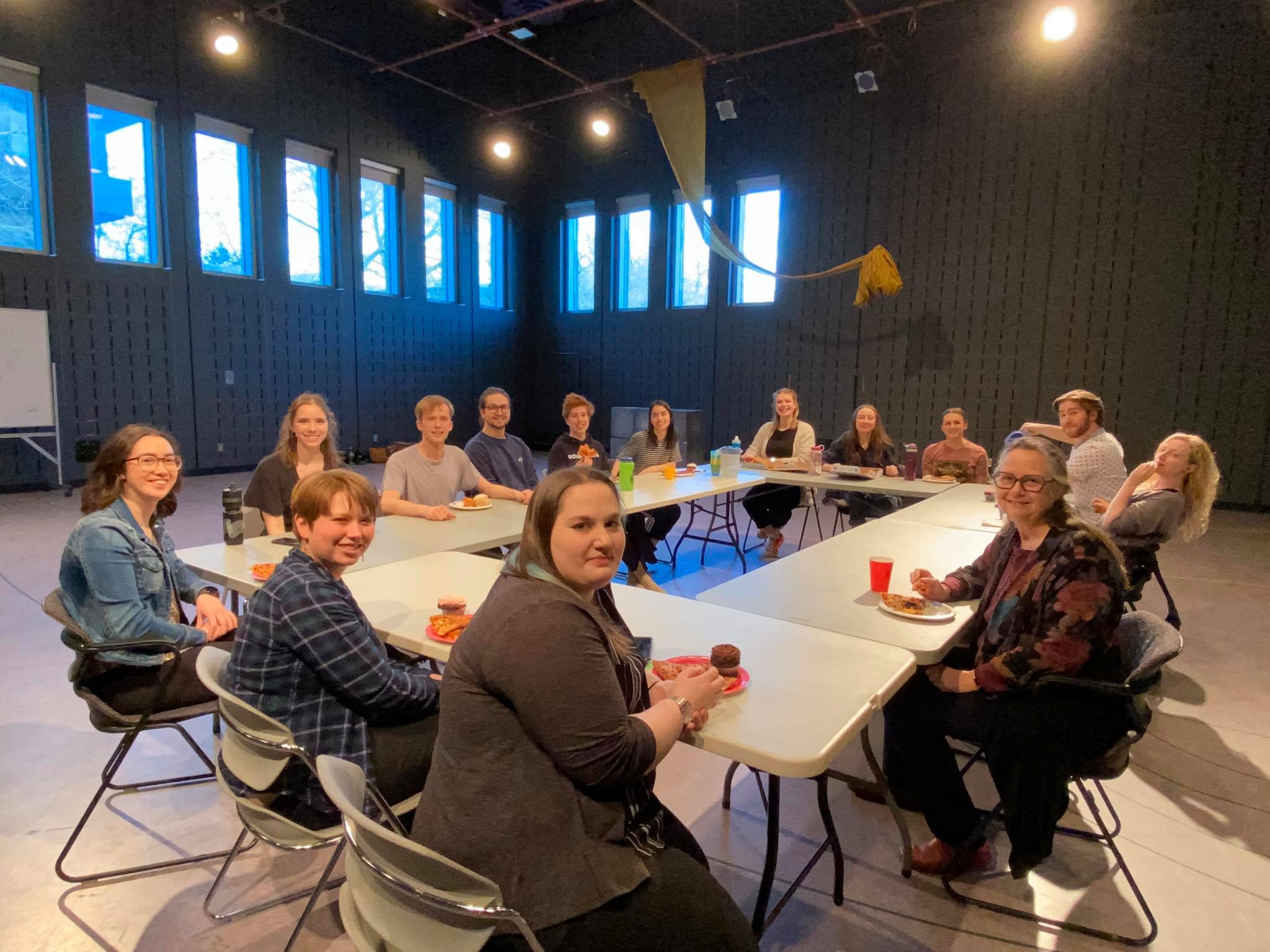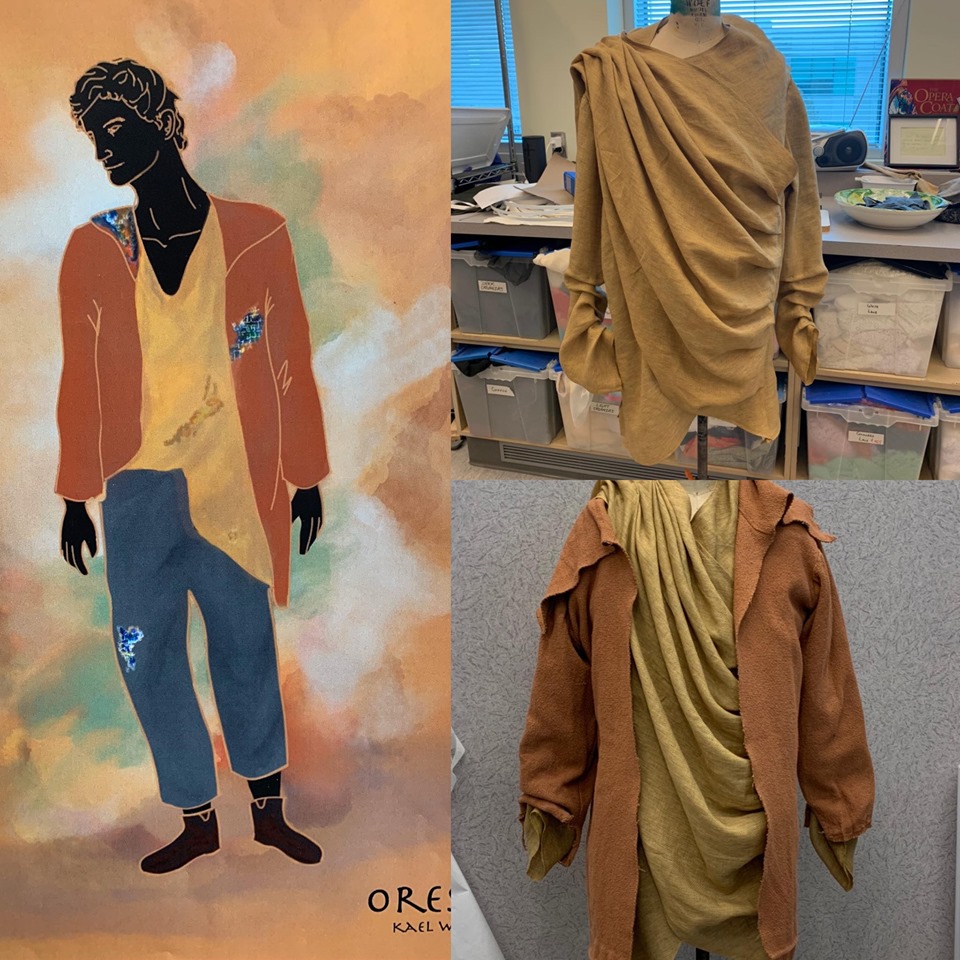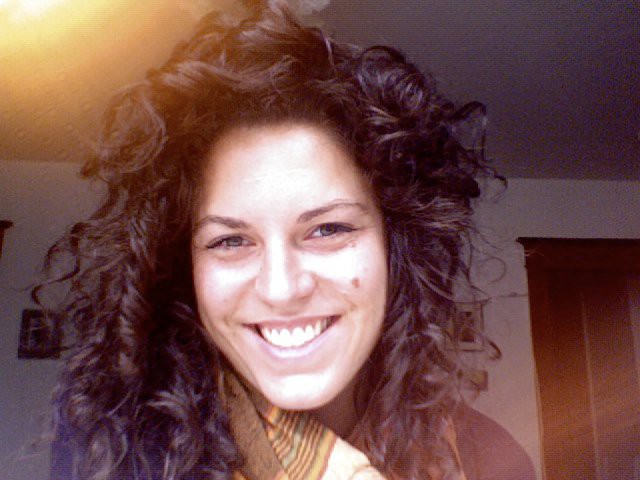The resiliency of artists
Erik Einsiedel - 7 April 2020
In September, 2017, playwright Meg Braem arrived at the University of Alberta as the Drama Department's newest Lee Playwright in Residence. Commissioned to create a new play whose world premiere was scheduled for April 3, 2020, Meg began crafting a story and characters, working closely with the BFA Acting class of 2020 for whom she would be creating these original roles.

The cast and crew of Chrysothemis celebrating some birthdays during a rehearsal.
A creative process that spanned almost three years, the result was Chrysothemis, a story about the lost daughter of the House of Atreus. Starving for love, affection and peace, Chrysothemis seeks nourishment for her damaged and divided family through cooking, but will the very essence of healing through food be enough to transform and nurture the most dysfunctional family in history?
Chrysothemis was to be the fourth production in the 2019-20 Studio Theatre season and incorporated student work on everything from costumes to props to sets, lights and much, much more.
 One of the costumes in progress designed by MFA Theatre Design student, Even Gilchrist.
One of the costumes in progress designed by MFA Theatre Design student, Even Gilchrist.
Chrysothemis was merely weeks away from opening on April 3 before having to be cancelled amidst the COVID-19 situation, much like many other artistic events and productions all over the world. While the future of this promising play remains to be seen, Arts News now shares Meg's original playwright's notes that were to appear in the Chrysothemis playbill, as well as a special message from Meg herself about the resiliency of artists throughout history in the face of uncertainty and incredible odds.
Chrysothemis Playwright's Notes
by Meg Braem, Lee Playwright in Residence

There is no shortage of war stories which recount the heroism and glory of the battlefield, but war stories can also tell us of valour of a different kind. While monuments of stone and bronze tell us of the ultimate sacrifice of soldiers, there are few statues commemorating their parallel pains: that of family members, often women, who suffered distance and separation, unknowing at home.
Chrysothemis, daughter to the warrior king Agamemnon and his vengeful spouse Clytemnestra, sister to Iphigenia, Orestes and Electra is forgotten like those left longing and wondering. She is known, if known at all, as the invisible sister. The fragments of her story betray her unwillingness to fight alongside the others. Because she does not participate in a retaliative, violent act, she is cast as passive and forgettable. I would argue that the choice not to fight, while not fitting into our visceral war fantasies or solemn remembrance, is no less brave.
For those that listen, soldiers have long returned telling a different war story. When the bloody glory of war is washed away, war wounds, guilts, and memories remain unhealed. Conflict continues long after the battle is over. Wars waged in other countries are dragged home and nightmare battles are fought between family members, often to tragic ends. In the past decades, these war stories have seen more light, but what feels new is actually a story as ancient as war itself. It is our ability to listen to those who didn’t have a voice that makes an old story contemporary…and perhaps gives those telling their story a chance to heal.
It has been a great pleasure and honor to work with the BFA class and student artists on Chrysothemis. Their dedication and courage are deeply woven into this piece. I look forward to future collaborations with these smart, creative emerging artists. I would also like to thank the faculty for creating an environment that encourages risk, respect and play.
Update: The production of Chrysothemis was cancelled less than a week after I wrote these playwright’s notes due to the Covid 19 epidemic. It was with great sadness, that we could no longer meet in the rehearsal hall as well proceed to sharing the fruits of our labour with an audience. The days after the cancellation have been difficult. It is a great reminder that a script is only the foundation upon which other artists create and build what is to be the play.
This loss has been felt across the world as performances and projects have been shuttered across the country. Many artists have suffered financially and are faced with uncertain futures for projects on which they have been working for years.
The artistic community is a resilient one. Theatre has been dying for thousands of years and has yet to succumb to its doom. In a matter of days, actors, musicians, technicians, writers, directors and designers have built digital platforms on which to share their work. There has been talk about this crisis changing the face of theatre forever…will people want to see live theatre again? Will people want to go into a room with other people? We don’t know the answer but I for one, am greatly looking forward to sitting with other people and watching the actors on stage. Throughout history people have adapted to the circumstances needed to tell and hear stories. May this setback just be another tale we tell each other reminding us of our resilience.
The first of its kind among Canadian universities, the Lee Playwright in Residence program was made possible by a generous legacy endowment created by the Clifford E. Lee Foundation. The residency offers an opportunity for Canadian playwrights to devote time to their writing and to make a significant contribution to new play development within the university and professional theatre community in Edmonton.